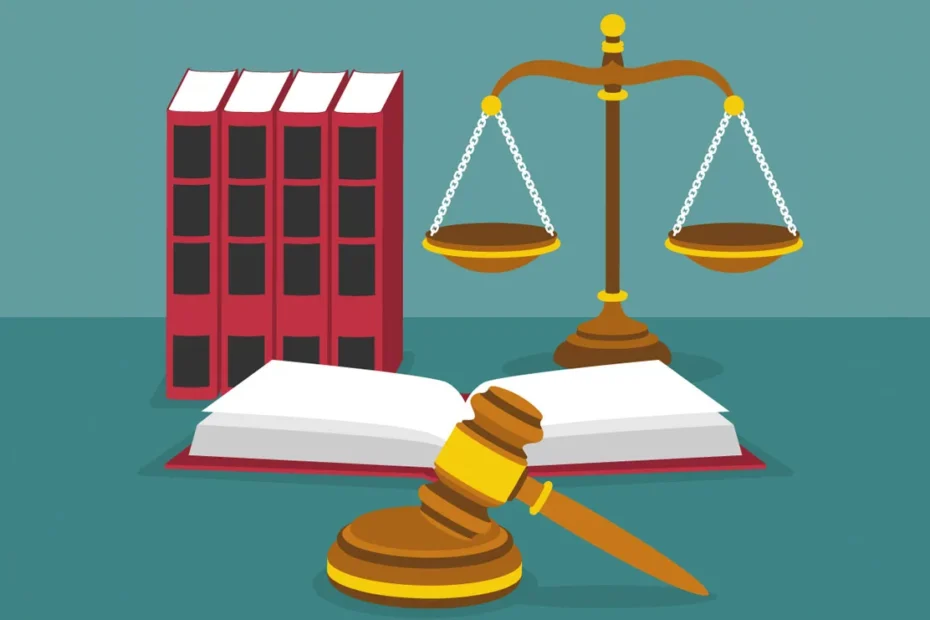Legal concerns can be intimidating, but understanding your rights and options makes them manageable. Whether dealing with personal injury, family issues, or criminal charges, knowing the types of law and services available helps find the right representation. This article offers insights into various legal areas to empower and educate readers.
Types of Law
Understanding different branches of law is helpful. Each area addresses specific issues and situations. Here’s an overview of some common types of law:
Civil Law
Civil law resolves disputes between individuals or organizations. It covers matters like contracts, property, and family issues. In civil law, the aggrieved party files a lawsuit seeking compensation or specific performances rather than criminal charges.
Criminal Law
Criminal law deals with offenses against the state or conduct detrimental to society. This type of law encompasses crimes like theft, assault, or fraud. Prosecutors represent the state, and the consequences can include fines, imprisonment, or both.
Family Law
Family law focuses on matters related to familial relationships, including divorce, child custody, and adoption. It’s a sensitive area that often requires careful mediation and negotiation.
Personal Injury Law
Personal injury law compensates if you’ve suffered harm due to another’s negligence. Common cases involve car accidents, slip and falls, or medical malpractice. Attorneys here work on a contingency fee basis, meaning they get paid only if you win the case.
Estate Planning
Estate planning involves preparing for the transfer of assets after death. It includes wills, trusts, and making decisions about healthcare directives. Proper estate planning ensures your assets are distributed as you wish and minimizes taxes and legal complications.
Choosing the Right Lawyer
Selecting a lawyer isn’t just about finding someone with legal knowledge. You need someone who understands your unique situation and communicates effectively. Here’s what to look for:
- Experience and Expertise: Find a lawyer specializing in the law relevant to your situation. Experience in a specific area provides valuable insights and understanding.
- Reputation and References: Seek recommendations from friends or family who have had positive experiences. Online reviews from previous clients can also provide insight into the lawyer’s effectiveness and professionalism.
- Communication Skills: A good lawyer communicates clearly and keeps you informed. Transparency about processes and potential outcomes is crucial.
- Affordability: Understand the fee structure and ensure it aligns with your budget. As mentioned earlier, some cases, like personal injury, may offer contingency-based fees.
- Comfort Level: You should feel at ease with your lawyer. A strong professional relationship often leads to better outcomes.
Legal Process Overview
Navigating the legal process can seem daunting, but breaking it down into steps can make it more manageable. Here are the general stages:
Initial Consultation
The process often begins with a consultation. This is when you discuss your situation with a lawyer, who assesses the viability of your case and outlines possible strategies.
Investigation Phase
During this stage, information gathering occurs. This might involve collecting documents, interviewing witnesses, and assembling pertinent evidence. A thorough investigation builds a strong foundation for your case.
Pre-Trial Activities
If your case proceeds, pre-trial activities include filing legal documents, attending hearings, and attempting settlements. Many cases resolve here, saving time and resources for both parties.
Trial
If a settlement can’t be reached, the case goes to trial. Both sides present evidence and arguments, and a judge or jury decides the outcome. Trials can be complex and require experienced representation.
Post-Trial
After the trial, either party may appeal the decision if they believe errors occurred that affected the outcome. Post-trial activities may also include collecting a judgment or negotiating post-trial settlements.
Frequently Asked Questions
Understanding legal matters often raises questions. Here are answers to some common queries:
- How long does a legal case take?
The timeline varies based on complexity, cooperation of parties, and the court’s schedule. Straightforward cases might conclude quickly, while others extend over months or even years. - What if I can’t afford a lawyer?
Consider options such as legal aid services or pro bono programs that help those unable to pay for legal representation. Many attorneys offer affordable payment plans or reduced fees. - Will my case go to trial?
Not necessarily. Many cases settle before reaching trial. Negotiation and mediation often provide quicker, less adversarial resolutions.
Facing legal issues can feel overwhelming, but you aren’t alone. Numerous resources exist to guide and support you through the process. Hiring professionals ensures that you understand your rights and options.
Online tools, such as blogs, forums, and legal resource websites, offer additional insights. These platforms often cover specific topics in detail, helping individuals learn more about their legal matters.
Whether you need immediate assistance or are seeking general information, Law Firms Las Vegas Nevada stand as excellent examples of dedicated professionals committed to protecting and upholding your legal rights.
Wrapping It Up: Your Legal Toolkit
Arm yourself with knowledge and the confidence to tackle legal matters head-on. By understanding different areas of law, choosing the right lawyer, and recognizing the legal process, you can face challenges with assurance. Remember, help is always one decision away.
The world of law is vast, but with the right information and guidance, you can navigate it effectively. Empower yourself to handle issues with insight and assurance today.







Health therapy plays a crucial role in improving overall well-being by addressing both physical and mental health needs. Whether it’s physical therapy for injury recovery, mental health therapy for emotional support, or alternative therapies like acupuncture or massage, each type offers tailored approaches to restore balance and promote healing. Regular therapy can help individuals regain function, manage pain, reduce stress, and improve quality of life, ultimately fostering a healthier, more fulfilling lifestyle.